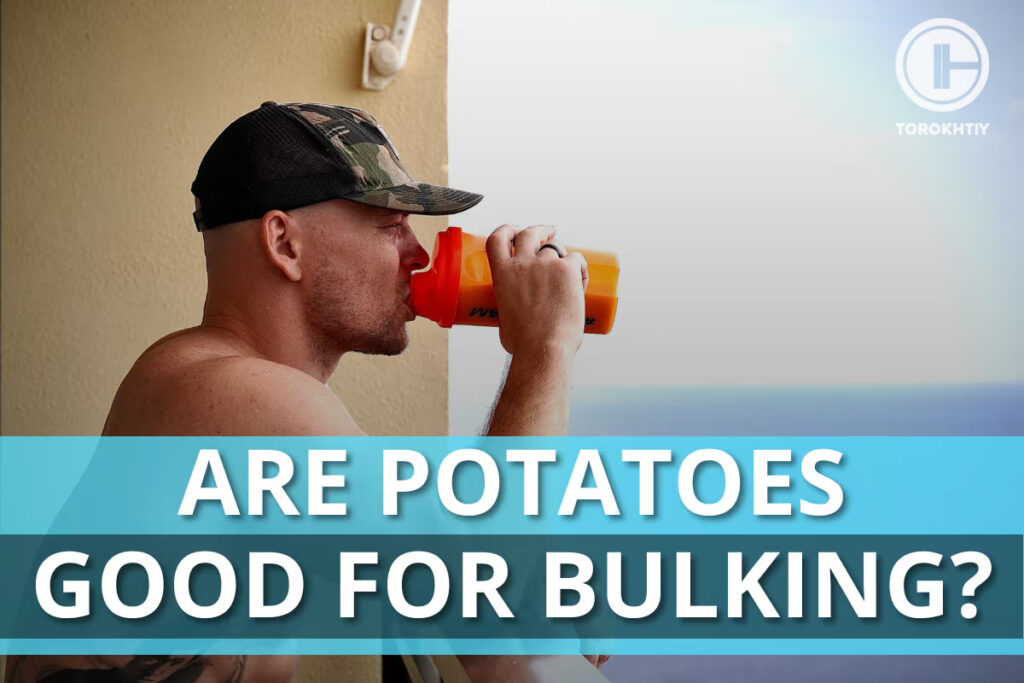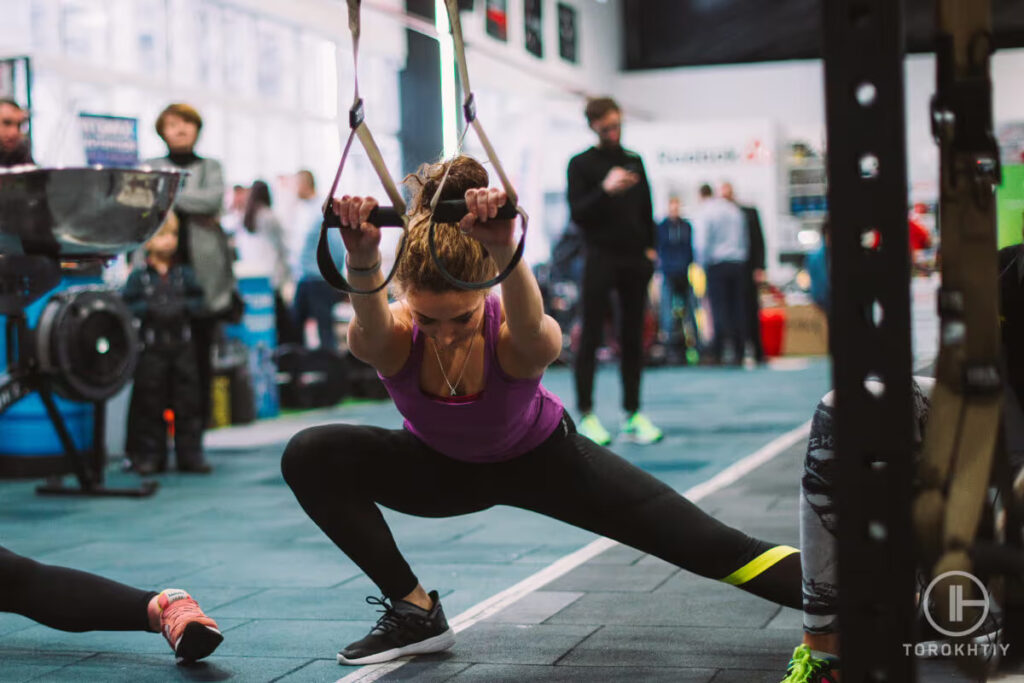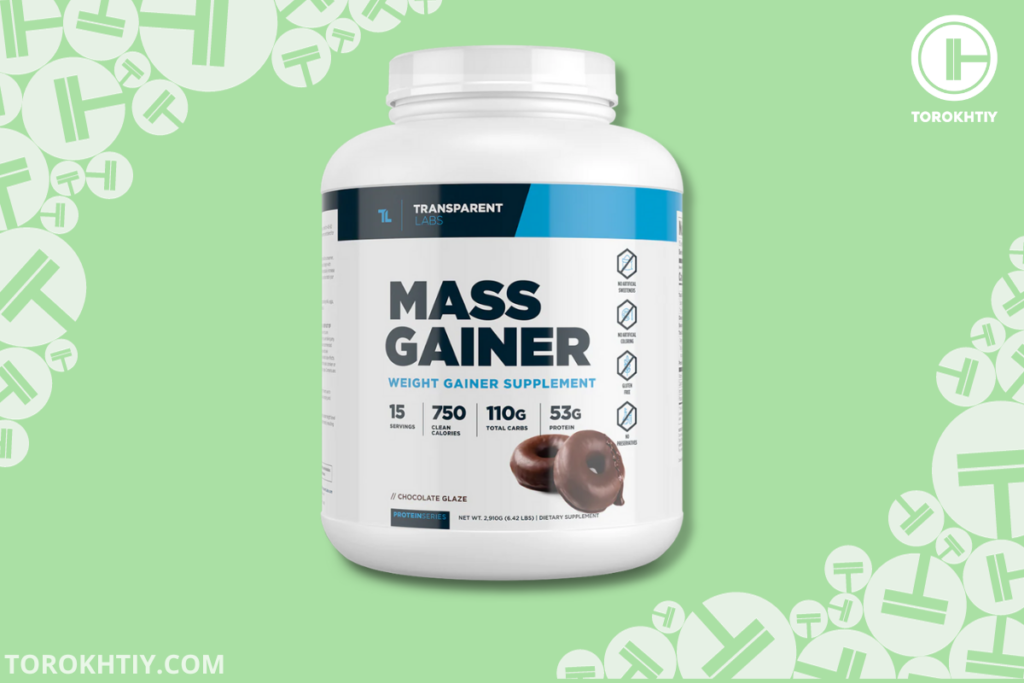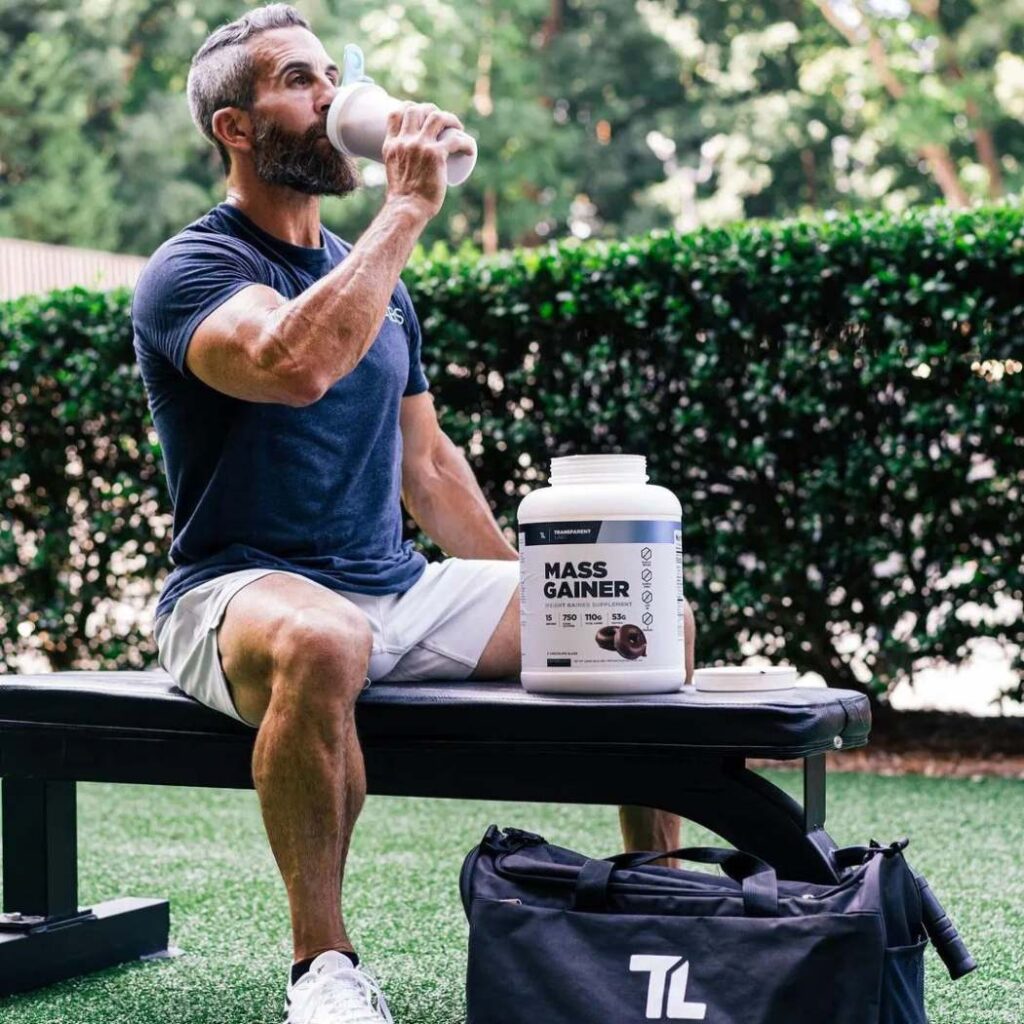Are Potatoes Good for Bulking?
Author:
Unlock your full potential by engaging with our experts and community! Have questions about your fitness journey or looking for expert advice on weightlifting techniques? Don’t hesitate — leave a comment below and David Sasha Schulz will provide a personalized answer and insights to help you reach your goals.
Torokhtiy is reader-supported. Some links are affiliate links, and we may earn a commission at no extra cost to you. See our disclosure page for details.
Are potatoes good for bulking? Carbohydrates fuel exercise and aid post exercise recovery. Potatoes are a good source of carbohydrates and high biological value protein that can help meet bulking needs. We discuss the advantages and disadvantages of potatoes as well as a mass gainer supplement you could try alongside your diet.
Are potatoes good for bulking? Potatoes are good for bulking because they contain a good amount of carbohydrates, high biological value protein, vitamins, and minerals. They could be incorporated into many dishes and are a favorite among many.

Are Potatoes Good for Bulking?
Bulking, in the context of bodybuilding or strength training, involves consuming a surplus of calories to support muscle growth. Specific nutrient needs for bulking can vary from person to person, depending on factors like age, sex, activity level, and individual goals.
In order to consume a caloric surplus, the key nutrients required for bulking include carbohydrates, protein, and fats. You could eat potatoes for bodybuilding while bulking or cutting.
Are Potatoes Good for Muscle Gain? Benefits of Potatoes for Gaining Muscle Mass
The benefits of using potatoes for bulking include the fact that they contain carbohydrates, high biological value protein and its culinary versatility. They are also a good source of essential nutrients like vitamins (especially vitamin C and some B vitamins), minerals (such as potassium), and dietary fiber. These nutrients are important for overall health and can support your body’s functions during a bulking phase.

✅ Contains Carbohydrates
Carbohydrates in particular provide the energy needed for workouts and daily activities. They have been shown to enhance performance in endurance sports since they are the preferred energy substrate for the muscles when working at moderate to high intensities.
Potatoes are a carbohydrate-rich food that are relatively calorie-dense, making them a convenient way to increase your daily caloric intake, which is often necessary when bulking. A 100g serving of potatoes, cooked, with skin contains about 20g total carbohydrates, 2g protein, and 0.1g fat.
Previous narrative reviews have recommended the following carbohydrate intakes:
- For heavy anaerobic exercise: 8–10g/kg of bodyweight/day
- For strength and hypertrophy: 4–7g/kg of bodyweight/day
- For endurance: 6–12g/kg of bodyweight/day
A more recent 2022 systematic review of 49 studies found that 4–10g/kg bodyweight/day may be excessive for strength-training athletes such as Olympic weightlifters, powerlifters, and bodybuilders.
The authors recommend at least 15g carbohydrates and 0.3g/kg bodyweight of protein within 3 hours of training sessions. Therefore, a meal containing 100g cooked potatoes and a protein such as fish could help achieve these targets.
A higher carbohydrate intake of 1.2g/kg/hour is recommended if the training session contains 11 or more sets per muscle group, or there is a second high-intensity workout later in the day.
✅ Adds Some Protein With Excellent Biological Value
While potatoes are primarily a carb source with little protein, its small amount of protein does possess a high biological value. The biological value of protein represents the proportion of amino acids that is absorbed by the gut and retained by the body since there are losses through the body’s natural waste products.
A high biological value means that the amino acids present in the food are in proportions that match the body’s needs. Potatoes have a biological value of 90–100, meaning that 90–100% of the nitrogen derived from the amino acids of the protein in potatoes are utilized by the body.

✅ It Is One of the Favorite Carbohydrate Foods for Many
There are many ways to prepare and eat potatoes. You could have potatoes before workout in a meal consisting of baked potato wedges and chicken strips or you could have potatoes after workout in another meal consisting of mashed potatoes and steak. This makes potatoes very versatile and enjoyed by many.
Disadvantages of Boiled Potatoes
Although there are some great advantages to including potatoes in the diet, there are some other factors, such as the glycemic index, glycemic load, and satiety index to consider.
❌ High Glycemic Index
Depending on the potato variety, it could hold a high glycemic index (GI) value. The glycemic index ranks how quickly a carbohydrate-containing food (consumed in isolation) raises blood glucose levels. Food ranked as 55 or less are low GI, 56–69 are medium GI, and 70 or more are high GI.
The higher the number, the quicker blood glucose levels go up, which could lead to feelings of an energy rush and crash or are not ideal for individuals with impaired glucose tolerance. Low glycemic index foods have been associated with improved health such as fewer metabolic markers of inflammation, better blood sugar regulation, lower lipid levels, and better weight management.
Compared to other grains and starches, potatoes (red or white) rank high on the GI scale. However, having said this, the effect of this could be mitigated by ensuring the meal also contains a good amount of protein, fibre, or fat.

❌ High Glycemic Load
The glycemic index is often used in conjunction with glycemic load in order to provide a fuller picture as to how a carbohydrate-containing food impacts the body. Glycemic load (GL) considers the quantity of carbohydrates in a standard serving of food as well as other foods/macronutrients consumed at the same time.
Food ranked as 10 or less are low GL, 11–19 are medium GL, and 20 or more are high GL. An amount of 1g of carbohydrates from white bread is a reference for one unit of dietary GL. Potatoes, for example, have a GL of 38, which is considered high.
❌ High Satiety Index
The satiety index is a tool developed out of the University of Sydney, Australia that compares the ability of different foods to satisfy hunger. The reference food item is white bread, given an index of 100. Foods with an index under 100 are less filling and foods with an index more than 100 are more filling.
The index does not describe how nutritional or calorie-dense a food is. It could be used in order to help you decide which foods to choose to stay full and eat less if the goal is to lose weight. Boiled potatoes, in particular, rank 323% on the satiety index scale, topping many other food items.
This could be advantageous if your goal is to lose weight. However, it could be a disadvantage if the goal is hypertrophy, you need more calories, or you have a high metabolism and need to work hard to gain weight.
Transparent Labs Mass Gainer: Weight Gainer Supplement

The Transparent Labs Mass Gainer: Weight Gainer Supplement contains 110g total carbohydrates (from maltodextrin), 53g protein (from grass-fed whey protein concentrate), and 14g total fat (from medium chain triglycerides) in a two scoop serving. Maltodextrin has been found to be a good carbohydrate source to improve overall exercise performance.

The supplement also contains 3g of creatine monohydrate in a two scoop serving, which is a good minimum daily amount to maintain muscle creatine stores.
The supplement could be taken on its own or combined with other supplements. If this is your first time trying a mass gainer, you might want to try taking half the dose (one scoop) first and then increasing to two scoops if needed.
The product comes in two flavours and contains no artificial sweeteners, colouring, or preservatives, and is gluten-free and non-GMO. Additionally, it is certified by Informed Choice, which assures the quality and purity of the product.
FAQ
Are Potatoes Good for Gaining Weight and Do Potatoes Help Build Muscle?
Potatoes are a concentrated source of quick-releasing carbohydrates that, when paired with a good source of protein such as meat, fish, or eggs, could help you achieve your goals of weight and muscle mass gain.
Are Potatoes Better Than Rice for Bulking?
Cooked, white rice contains slightly more carbohydrates at 31g per 100g than potatoes although they are similar in terms of their glycemic load. Potatoes are higher on the glycemic index and satiety index scale.
Therefore, white rice may be a better option for bulking since it has more carbohydrates per serving and does not make you feel as full, meaning you would have a better appetite for meeting the higher nutrition requirements of bulking.
Are Fries Good for Bulking? Are Mashed Potatoes Good for Bulking?
Fries can be a good way to increase caloric intake as they contain carbohydrates from the potatoes and the oil used to prepare them would be a dense source of calories. They are also a popular food for many and served at most restaurants or food service places, making them a convenient option wherever you are.
Conclusion
Potatoes are a good source of nutrients for bulking as they contain carbohydrates, high biological value protein and several micronutrients. They are also a popular favorite among many. Have you replaced other carbs for them and noticed any differences that helped with your weight and muscle gain? Share with us, below!
Also read:
- Best Budget Mass Gainer
- Is Mass Gainer Bad for You
- Smoothies for Weight Gain
- Bulking Breakfast
- Cheap High Calorie Meals
- Foods With Electrolytes
- Does Mass Gainer Increase Belly Fat
- When Is the Best Time to Bulk
References:
- Louise M Burke, John A Hawley, Stephen H S Wong, Asker E Jeukendrup, “Carbohydrates for training and competition”, National Library of Medicine, https://pubmed.ncbi.nlm.nih.gov/21660838/ (accessed Sep 2011) 29 Suppl 1:S17-27.
- “Potatoes, boiled, cooked in skin, flesh, without salt”, U.S. DEPARTMENT OF AGRICULTURE, https://fdc.nal.usda.gov/fdc-app.html#/food-details/170438/nutrients (accessed Jan 04, 2019).
- D R Pendergast 1, K Meksawan, A Limprasertkul, N M Fisher, “Influence of exercise on nutritional requirements”, National Library of Medicine, https://pubmed.ncbi.nlm.nih.gov/21079991/ (accessed Mar 2011), 111(3):379-90
- Menno Henselmans, Thomas Bjørnsen, Richie Hedderman, Fredrik Tonstad Vårvik, “The Effect of Carbohydrate Intake on Strength and Resistance Training Performance: A Systematic Review”, National Library of Medicine, https://www.ncbi.nlm.nih.gov/pmc/articles/PMC8878406/ (accessed Feb 2022)
- “Biological Value”, Reference Module in Biomedical Sciences, https://www.sciencedirect.com/topics/biochemistry-genetics-and-molecular-biology/biological-value (accessed 2014)
- “What is the Glycemic Index?” CDA CPG https://guidelines.diabetes.ca/health-care-provider-tools/glycemic-index
Why Trust Us?
With over 20 years in Olympic weightlifting, strength training, nutrition coaching, and general fitness our team does its best to provide the audience with ultimate support and meet the needs and requirements of advanced athletes and professional lifters, as well as people who strive to open new opportunities and develop their physical capabilities with us.
By trusting the recommendations of our certified experts in coaching, nutrition, and sports training programming, as well as scientific consultants, and physiotherapists, we provide you with thorough, well-considered, and scientifically proven content. All the information given in the articles concerning workout programming, separate exercises, and athletic performance, in general, is based on verified data.
The product testing process is described in more detail here.
Author: David Sasha Schulz
Doctor of Chiropractic, BSc Human Biology, CSCS
Strength coach (CSCS) – 10 years
Sasha is a Chiropractor and Kinesiologist practicing in Kelowna, BC, Canada. He has been practicing Chiropractic since 2019, integrating manual therapy, strength training and programming principles, and nutritional strategies to get his patients optimal results. He currently scratches the competitive itch in fitness, and the occasional endurance race, and plays golf and snowboards for fun. He has an interest in all strength and fitness-related sports.



Still have questions after reading our article? Unlock your full potential by engaging with our experts and community! Don’t hesitate — leave a comment below and David Sasha Schulz will provide a personalized answer and insights to help you reach your goals.